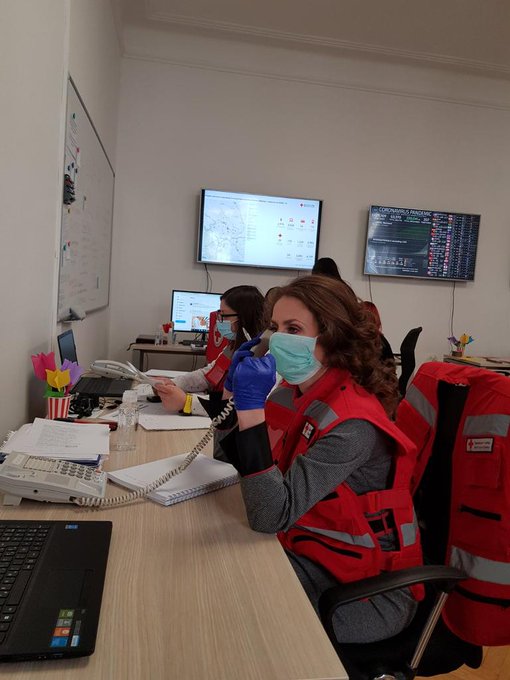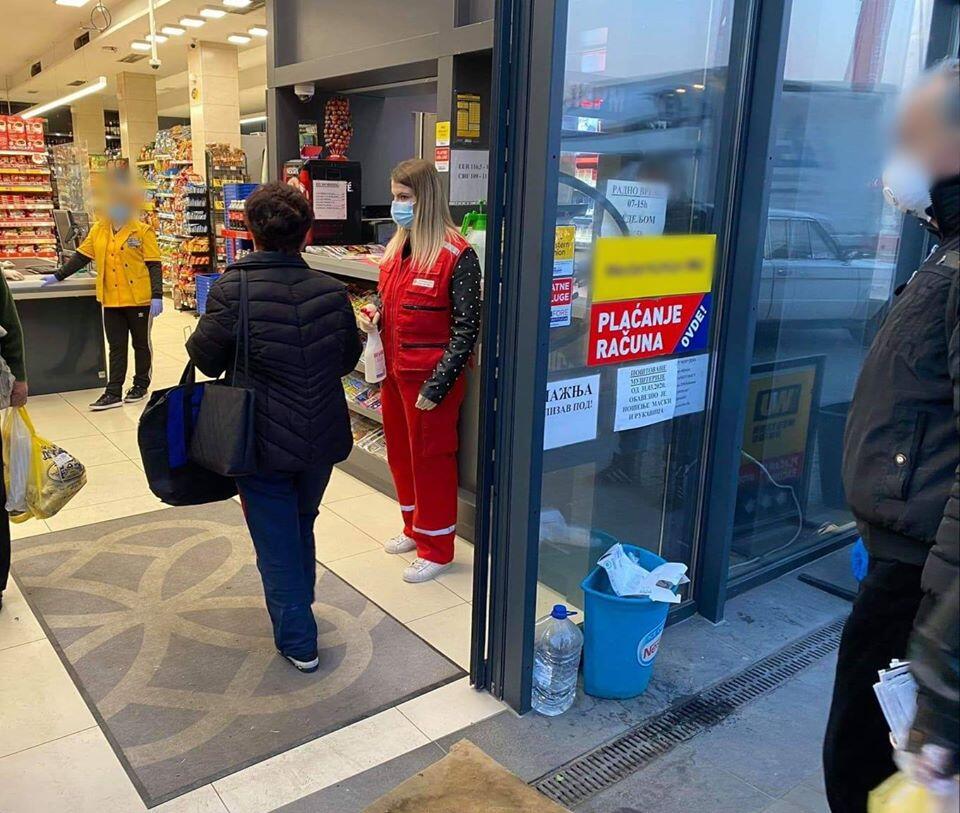Only two days after state of emergency due to COVID19 pandemics has been declared in Serbia on 15 March, 24 hour movement restriction has been put in place for people over 65 in urban areas, and for people over 70 living in cities inhabited with less than 5 thousand people.
This means older people had to leave their usual habits: morning walks and coffees with their neighbors, visiting or hosting relatives for family lunch, taking care and playing with grandchildren. This is a new reality for many and many of them are still coping with new living conditions.
“We know that psychological effects of isolation can have multiple negative effects such as fear, nervousness, sadness, and guilt. With so many stress factors that arose from COVID19 pandemics such as fear of infection, frustration, boredom, inadequate supplies, inadequate information, stigma, financial challenges, having someone to talk to is very much needed”, states Natasa Todorovic from the Red Cross of Serbia. As of 21 April, government introduced new measure allowing people over 65 to take 30 minutes walks three times a week.
In light of this, as of April 2020, UNFPA started supporting helplines for older people in the country that provide legal advice, psychological first aid and psychosocial support. In just 4 days of running, helplines managed 30 calls and inquires.
Older people across the country call to share their experiences and challenges they are now facing.
“I am tired of everything in my 73 years of age... I have been fighting with my son’s cerebral paralysis and autism and now I have to fight corona. I cannot go out, stand in line, leave him alone, wait for our pension... I am tired“- said Nada (73).
But call workers are not only there to listen and comfort people like Nada. Depending on what older people need, they also refer callers to other services in their communities or arrange local volunteers to support them directly. Sometimes, what they need is not available immediately but they make sure to follow up once it is.
"Thank you, it worked. Thank you for the time, for finding solution", said Mica (65) after one of the conversations.

“Majority of them complain about feeling lonely, even experiencing anxiety attacks, and they find separation from their children and especially their grandchildren to be the hardest. They also ask for advice for prolonging medical prescriptions, availability of home care services, and some of them are worried about their demented friends who leave their homes with no knowledge that now they are breaking the law which is why we appealed to the Ministry of Interior”, states Ms. Brankica Jankovic, Commissioner for the Protection of Equality and also a volunteer at the helpline every Friday from noon to 3 PM.
UNFPA supported helplines managed by the Red Cross of Serbia provide not only assistance to older people. They include psychological first aid and psychosocial support provided by a certified Red Cross professional, legal advice provided by the Commissioner for Protection of Equality, advice on accessing the services of the system of social welfare provided by a professional social worker and psychological first aid in English language provided to foreign citizens in Serbia who can not access similar services in Serbian language. The Commissioner's assistance so far was partly to solve individual problems but also to find system solutions that will be used to also help future callers.
Older people living alone without family support and with low income especially vulnerable
Older persons living alone or in couples, without family support and with low income may find it exceptionally difficult to obtain supplies, especially when it comes to personal and apartment hygiene. It is of the utmost importance to maintain hygiene to prevent infection, however since they can not leave their households and may not have regular support from relatives or neighbors, they may be unable to obtain hygiene articles.
UNFPA works to reach 3,000 of those most vulnerable older people with information and hygiene items they very much need while they are staying in isolation.


